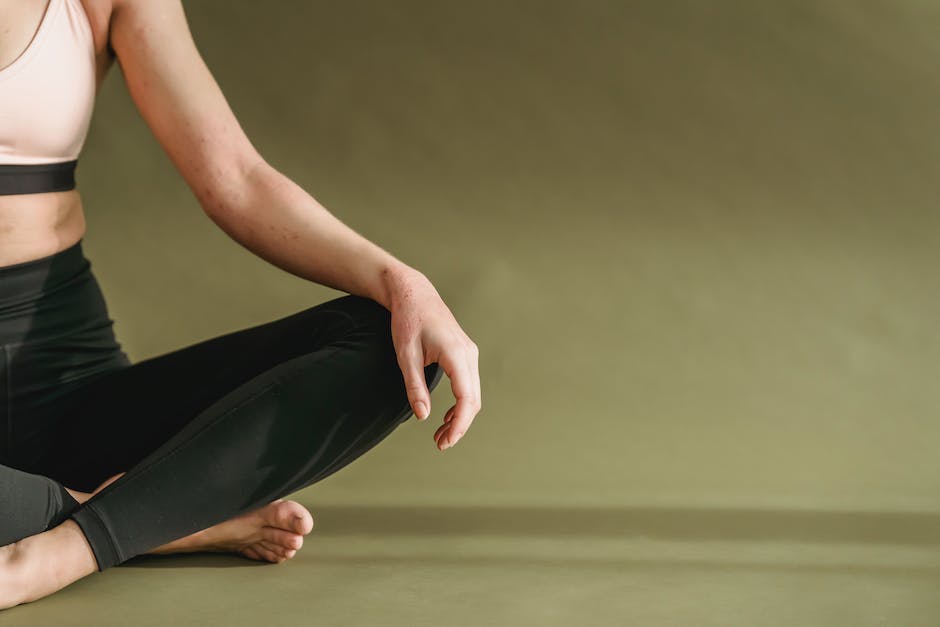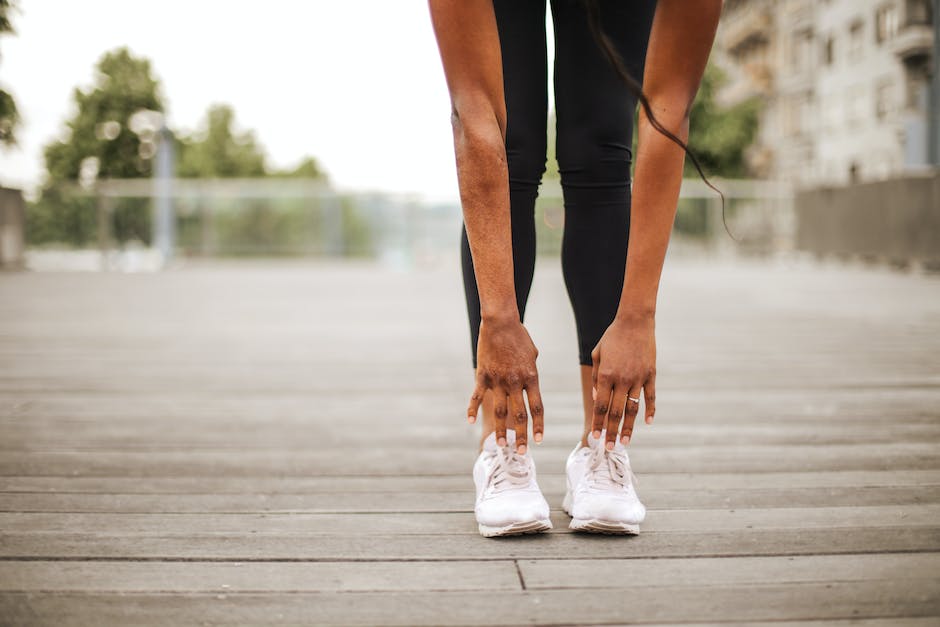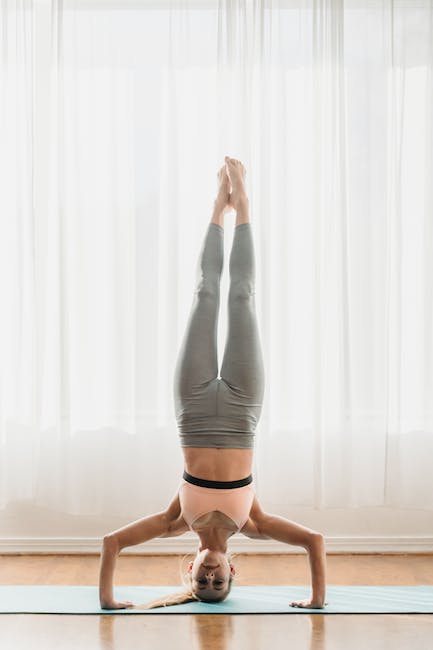
Fitness: The Key to a Healthy Mind?
Do you want to live a healthier life? Are you trying to achieve a better balance between your mental and physical health? If this is something you strive for, then fitness is the key to a healthy mind. In this article, we’ll explore how proper exercise can help improve your mental well-being.
List of Content
- 1. What is Fitness?
- 2. How Does Fitness Impact Your Mental Health?
- 3. Tips for Getting Fit and Staying Healthy
- 4. Benefits of Regular Exercise
- 5. Making Fitness a Lifestyle
- 6. Evaluating Your Fitness Journey
- My Awnswers to your Questions
1. What is Fitness?
Fitness is a term that often has many interpretations. What is true is that it is about one’s overall physical health. But it also includes other aspects such as mental and emotional wellbeing. It’s about improving the overall quality of life.
In general fitness involves several components such as strength, flexibility, endurance, agility, balance and agility, timing, speed, power, and coordination. It also includes cardio and aerobic fitness, core strength, mental and emotional wellbeing, nutrition and diet.
Regular physical activity is essential for fitness and a healthy lifestyle. This can come in different forms, such as weight training, running, swimming, cycling, and even active sports like football or basketball. It is important to find physical activities that you enjoy doing, as this will make it much easier to stay motivated.
Some of the benefits of fitness are:
- Improved physical and mental health
- Reduced stress levels
- Increased energy levels
- Impro

2. How Does Fitness Impact Your Mental Health?
Physical activity has been linked to improving mental health and emotional well-being. Regular exercise promotes healthy changes in the brain, helps you better manage stress, reduces the symptoms of anxiety and depression, and boosts your overall mood and outlook.
- Better Mood and Outlook: Exercise stimulates the release of endorphins, chemicals that enhance your mood and create feelings of happiness. Endorphins can also make you feel energized, motivated, and more positive overall. Both aerobic and strength training activities have been found to reduce feelings of anxiety, stress, and depression.
- Better Sleep: Studies show that having a regular physical activity routine can improve sleep quality and increase relaxation, which can help combat insomnia. Those who exercise regularly often enjoy the benefits of reducing their stress levels and falling asleep faster.
- Improved Cognitive Health: Regular physical activity has been found to reduce the risk of cognitive decline and improve memory. It can provide an increase in oxygen to the brain that can help in the development of new brain cells and the growth of existing ones. This can lead to improved brain functioning, concentration, and concentration.
- Reduce Stress: Exercise helps your body and mind better cope with stress. Your muscles tense during times of stress, which causes a buildup of stress hormones in your body. Regular exercise can help release that tension, which can help reduce the effects of stress and can help you maintain a healthy balance in your life.
In short, making physical fitness a priority can profoundly improve your mental health.You should remember that your level of fitness doesn’t have to be extraordinary, rather making small changes in your daily routine can go a long way in maintaining proper mental health. Aim to get in a minimum of 30 minutes of physical activity a day and you will soon start to feel the positive effects on your mental health.
3. Tips for Getting Fit and Staying Healthy
Move Regularly – Incorporating regular physical activity into your daily routine is essential for overall health and fitness. Ideally, aim for at least 30 minutes of activity a day. Take a brisk walk around the block, ride a bike, hit the gym, or try something new like a fitness class. Exercise can help improve your mood, regulate your sleep cycle and reduce stress.
Eat Nutritious Food – Eating healthy foods, like lean proteins, whole grains, vegetables, and fruits, can help nourish your body and keep you full throughout the day. Avoid unhealthy processed foods. Remember, moderation is key – so it’s ok to indulge every once in a while. Just make sure to do it in moderation.
Get Enough Rest – Having adequate sleep helps fuel your day and maintain quality of life. Aim for 7-9 hours of sleep every night to adequately rest and rejuvenate your body. Make sure to wind down in the evenings and build a consistent routine that facilitates quality sleep.
Manage Stress – Making sure to take time for yourself and manage stress is an important part of staying healthy. Find activities that relax and rejuvenate you – the possibilities are limitless: going for a walk, reading a book, listening to calming music, having a cup of tea, or getting lost in an art project. It’s important to take a break from the hustle and bustle of everyday life in order to give yourself a chance to decompress and rest.
4. Benefits of Regular Exercise
Stronger Muscles and Bones
Regular physical activity can decrease the risk of developing bone and muscle loss. It increases muscle strength and helps you maintain a healthy weight. When done regularly, exercising can slow down bone loss associated with age, improving bone density and reducing risk of injuries and fractures.
Better Mobility and Balance
Engaging in physical activity can help improve balance, coordination, and flexibility. It helps preserve muscle strength and decreases the risk of falls which can occur in some older adult populations. Engaging in specific exercises like yoga can improve flexibility and posture.
Better Mental Health
Developing strong physical activity habits may lead to better mental health. Exercise reduces stress and has been proven to help with depression, tension, and anxiety. Studies have shown that physical activities increase endorphins which creates a feeling of happiness and overall well-being.
Higher Self-Confidence
Becoming physically active increases the ability to set and quickly reach goals. People often develop a better body image after engaging in physical activities, feeling better about yourself increases your overall level of self-confidence and can end up improving performance in other areas of life.
5. Making Fitness a Lifestyle
The most important thing to remember about is that it’s not a one-time event. Rather, it’s something that you have to work towards every day. Here are some tips for doing just that:
- Commit to a routine and stick to it: Whether it’s taking a walk or doing a particular type of exercise, make sure that you commit yourself to doing it every day. You’ll be more likely to stick to it if you have an organized plan.
- Find an activity that you enjoy: Working out doesn’t have to be a chore. Find something that you enjoy doing, such as swimming or dancing, so that it’s something that you look forward to doing.
- Make healthy eating a habit: Eating healthy isn’t just about losing weight, it’s also about giving your body the nutrients it needs to stay healthy. Try cooking more often and eating fewer processed foods.
- Reward yourself: Celebrate the milestones you achieve each week or month. That way, you’ll have something to look forward to each week or month.
Set realistic goals: It’s important to set realistic goals that you can actually achieve. If you set goals that are too ambitious, you may end up overwhelmed and burn out. Instead, set achievable goals and take it one step at a time.
Stay motivated: It’s not always easy to stay motivated. But when times get tough, find ways to motivate yourself, such as rewarding yourself for each goal you accomplish or talking to a friend who is also trying to make a lifestyle change. And if all else fails, find someone who can push you and hold you accountable.
Don’t give up: isn’t easy. It takes time and dedication. Don’t give up if you don’t see results right away. Keep working towards your goals and you will eventually reach them.
6. Evaluating Your Fitness Journey
Staying on top of your fitness is hard work and extremely rewarding. After you have been working hard to reach your goals for some time, it is important to take a step back and evaluate where you’re at. lets you understand how far you have come and what areas need improvement.
Assess Your Progress
- What goals have you achieved so far?
- What goals are yet to be met?
- What could you do differently to achieve those goals?
Evaluating your fitness progress is a way to decide if your goals are still relevant, and a great way to recognize your achievements. Allowing yourself to be proud of what you have accomplished is a great motivation to keep striving towards your goals.
Measure What Matters
- Are you tracking what matters?
- Do you need to adjust your benchmarks or switch to measuring milestones?
- Do you need to alternate between physical and emotional benchmarks?
Sometimes, just seeing numbers on paper is not enough. Allowing yourself to think outside of the box and measure more than your physical performance can be incredibly helpful. Track your diet, your wellbeing, or allow yourself to be creative and plan out new fitness goals.
My Awnswers to your Questions
Q: What is fitness?
A: Fitness is a state of physical health and well-being. It involves exercising, eating nutritious foods, and getting enough sleep.Q: What are the benefits of fitness?
A: Regular exercise can help improve physical fitness, reduce the risk of ailments like heart disease and diabetes, and improve your mental wellbeing. It can help reduce stress, improve self-esteem and mental clarity, and promote better sleep.Q: How can I get started with fitness?
A: There are many ways to get started with fitness. Start by setting realistic goals such as walking for 30 minutes every day or doing body weight exercises for 15 minutes. It could also be helpful to create a schedule to stay on track. Additionally, look into taking classes at a local gym or enrolling in fitness programs. Getting in contact with a fitness professional such as a personal trainer or physical therapist can also be helpful.Q: What are some tips for staying motivated to continue fitness activities?
A: Motivating yourself to keep up with fitness can sometimes be a challenge. To make it easier, find an exercise buddy or join a community fitness group. You can also find ways to make your workouts more enjoyable such as listening to music, trying different activities like running, or downloading a fun fitness app. Finally, remember to celebrate your successes and take breaks if needed.So, there you have it! Fitness is a great way to improve your overall health and mental wellbeing. So be sure to get out there and hit the gym to keep yourself healthy and active – it will make a big difference in how you feel. Thanks for reading!


